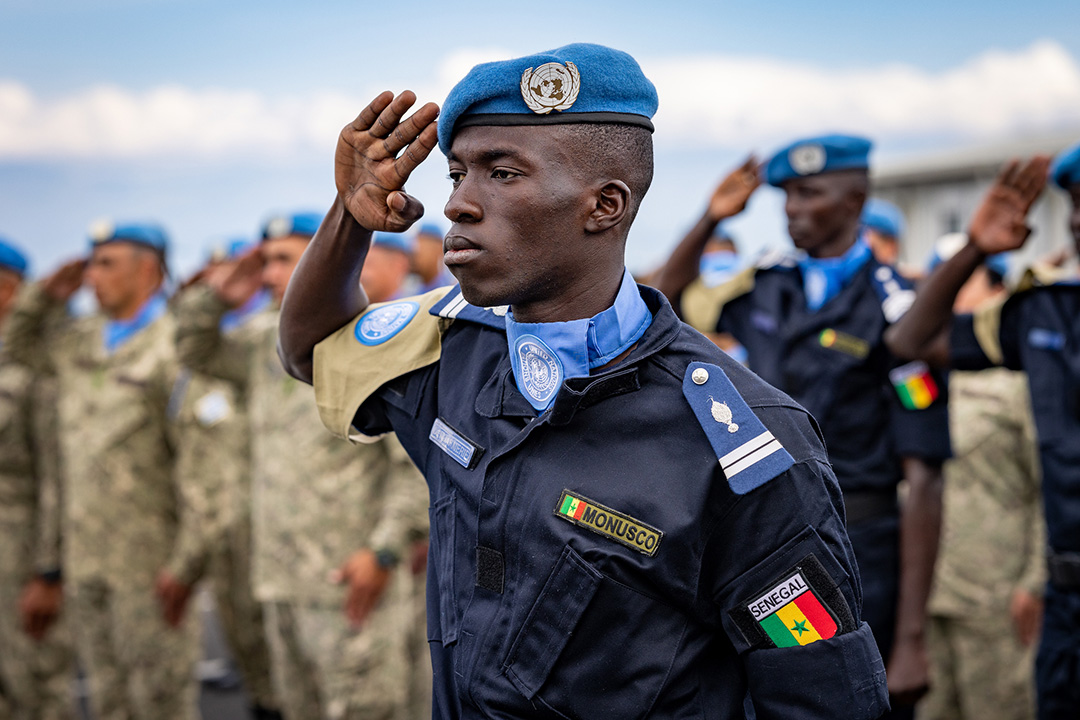Accelerated MONUSCO Withdrawal Could Endanger Congolese
ADF STAFF
When he took the podium at the United Nations General Assembly meeting on September 20, Democratic Republic of the Congo (DRC) President Felix Tshisekedi called for an expedited withdrawal of the U.N. mission, known as MONUSCO.
“It is time for our country to take full control of its destiny and become the main actor in its own stability,” he said.
But experts say moving up the timetable by a year — the end of 2023 instead of the end of 2024 — is short-sighted for a number of reasons.
“They are going to be replaced by regional forces, and I don’t think they will necessarily fare any better,” Tara O’Connor, founder and executive director of Africa Risk Consulting, said in a panel discussion on Al-Jazeera.
“The real risk is that you will get much more profiteering as we saw before the U.N. force came in. You’re talking about an area that has enormous mineral wealth that many regional players and many countries have a great deal of interest in.”
O’Connor said MONUSCO has been “severely impaired” by the DRC government’s lack of commitment to addressing underlying issues in a vast region that’s nearly 2,000 kilometers from the capital, Kinshasa.
“From a military point of view, the region is largely ungovernable,” she said. “The terrain is impossible, and there’s a paucity of infrastructure.”
For years, observers have questioned how reasonable it is to expect the U.N. to keep the peace in a region that has known only conflict for decades.
Thomas Mandrup, of Stellenbosch University’s Security Institute of Governance and Leadership in Africa, said the regional forces that are replacing MONUSCO — from the East African Community (EAC) and the Southern African Development Community (SADC) — will encounter the same problems.
“The question is whether they will be able to go in and fill the void that the MONUSCO will leave,” he told the South African Broadcasting Corp. “It is very unlikely that at this stage we are going to see other forces being able to effectively handle it, if the Congolese do not want to take responsibility themselves.”
On September 5, the EAC extended the mandate of its regional force (EACRF) by three months to December 8.
Although it has not announced a deployment date, SADC’s regional force (SAMIDRC) is expected to take a more offensive posture in combating eastern DRC’s many insurgents and armed groups.
In an August report, U.N. Secretary-General António Guterres proposed withdrawing all MONUSCO units from South Kivu and one battalion from North Kivu, as well as some of the mission’s specialist units, military observers and staff officers.
His report also noted “the need to adjust MONUSCO’s mandate to enable the mission to leverage its operational and logistical capabilities in support of the EACRF and possibly the SAMIDRC once it is deployed.”
Not all U.N. Security Council members agree with the idea of MONUSCO’s accelerated withdrawal.
In a September 28 Security Council briefing on the DRC, British Deputy Ambassador James Kariuki said the U.N. should consider only a reduction in the number of peacekeepers.
“We must carefully consider the implications of MONUSCO’s drawdown on the civilian population,” he said. “The consequences of a rushed departure would be severe.”
After the briefing, MONUSCO chief Bintou Keita said she still must meet with Congolese Prime Minister Jean-Michel Sama Lukonde to discuss the four remaining benchmarks that must be achieved “for a withdrawal in a progressive and responsible manner.”
“We are talking still about the protection of civilians,” she told reporters. “We are still talking about the implementation of the disarmament, demobilization, community reintegration and stabilization, and we are talking about the security sector reform.”


Comments are closed.